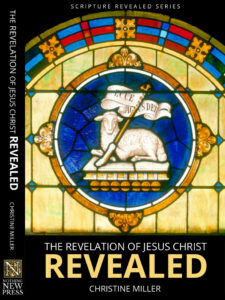Read Revelation 9 at Bible Gateway.
Revelation 9, The fifth trumpet: The army of locusts
Revelation 9, The duration of the fifth trumpet
Revelation 9, The fifth trumpet of torment but not death
Revelation 9, The conclusion of the fifth trumpet
Revelation 9, The four angels of the sixth trumpet
We will use, for history reference, Gibbon’s Decline and Fall of the Roman Empire, for he describes the Turkish invasion in great detail, and H.G. Wells Outline of History. Now no one would accuse either of these men of being Christians. Gibbon was an ardent unbeliever, whose opinions shocked the society of his day. H.G. Wells was well- known as a secular humanist, a socialist, even an anarchist whose hope for the salvation of mankind lay in a one- world government run by an intelligent and educated elite. He was also a convinced evolutionist, having had T. H. Huxley as a professor of biology at university. Neither of these men would knowingly doctor their history to strengthen the validity or accuracy of Scripture; but rather, both reported the facts as they found them.
“Since the fall of the caliphs, the discord and degeneracy of the Saracens respected the Asiatic provinces of Rome; which, by the victories of Nicephorus, Zimisces, and Basil, had been extended as far as Antioch and the eastern boundaries of Armenia. Twenty-five years after the death of Basil, his successors were suddenly assaulted by an unknown race of Barbarians, who united the Scythian valour with the fanaticism of new proselytes, and the art and riches of a powerful monarchy.” Gibbon, chapter 57.
The Saracens are the Arabian Mohammedans. Nicephorus, Zimisces, and Basil are Byzantine emperors, ruling at Constantinople. The Turks crossed the Euphrates in 1056, the year following the deliverance of Baghdad, as Gibbon had already told. 1056 was not 25 years after the death of Basil (who Gibbon reports died in 1025), but 31 years. Gibbon names the Turks Scythians. Josephus tells us that the people the Jews called Magogites, the Greeks called Scythians. Magog was one of the sons of Japheth, the son of Noah, who settled in central Asia, and from whom sprang the Tartars.
“The myriads of Turkish horse overspread a frontier of six hundred miles from Tauris to Arzeroum, and the blood of one hundred and thirty thousand Christians was a grateful sacrifice to the Arabian prophet.” Gibbon, chapter 57.
Now Revelation makes it clear that the power unleashed from the Euphrates would be a great army of horsemen. The number of them from Revelation, in the Greek, reads “twice myriad times myriad,” and Gibbon uses the same number to describe the Turks, myriads, and even makes it plural, as John takes pains to do.
“Very early they [the Turks] conquered Armenia from the Greeks, and then, breaking the bounds that had restrained the power of Islam for four centuries, they swept on to the conquest of Asia minor, almost to the gates of Constantinople.” Wells, Outline of History, 32.8, emphasis added.
Here H.G. Wells echoes the very words of Revelation to describe the Turks as breaking the bounds which had held them beyond the Euphrates.
Revelation 9, The duration of the sixth trumpet
Revelation 9, The sixth trumpet army
Revelation 9, The trumpets did not inspire repentance
Return to Revelation Index of Studies
Christine’s book The Revelation of Jesus Christ Revealed, based on these studies but greatly expanded, is now available from Nothing New Press. You may also be interested in reading the Book Extras and joining in on the Discussion.
As well, Revelation in Chiastic Structure is also available.

















Leave a Reply